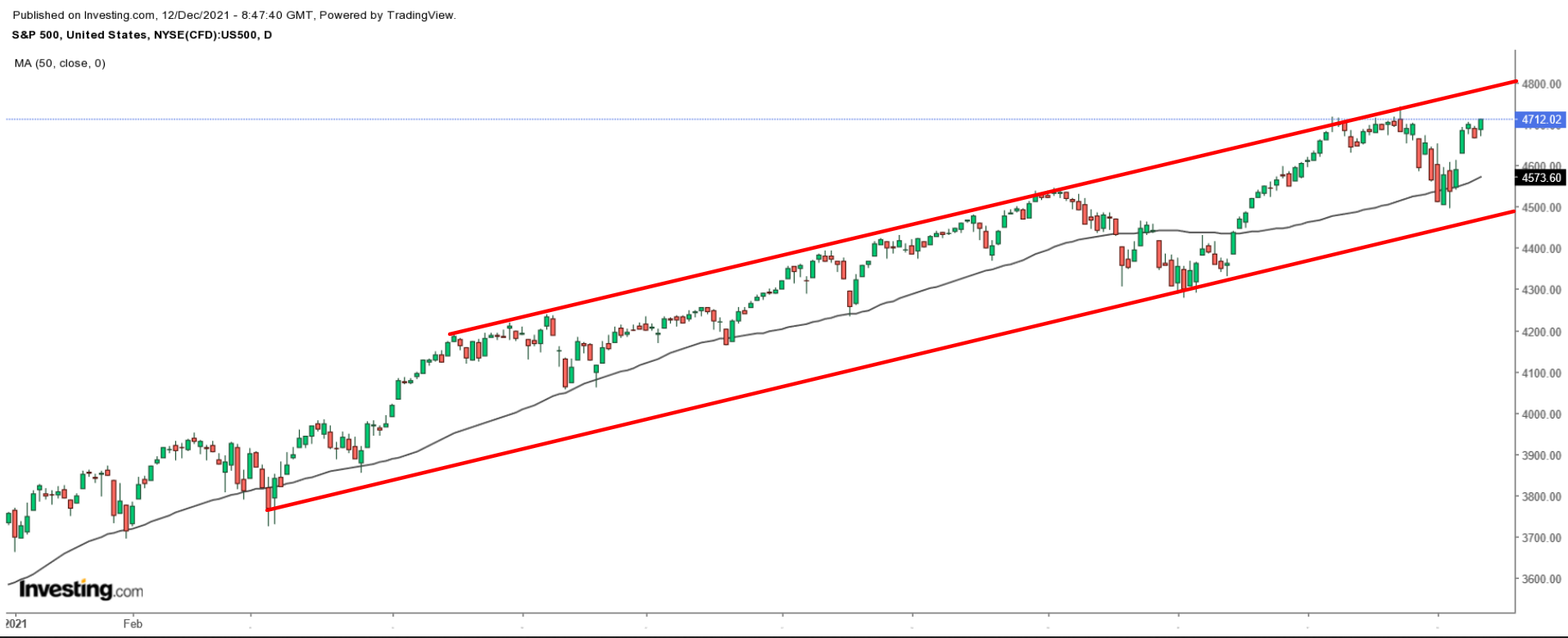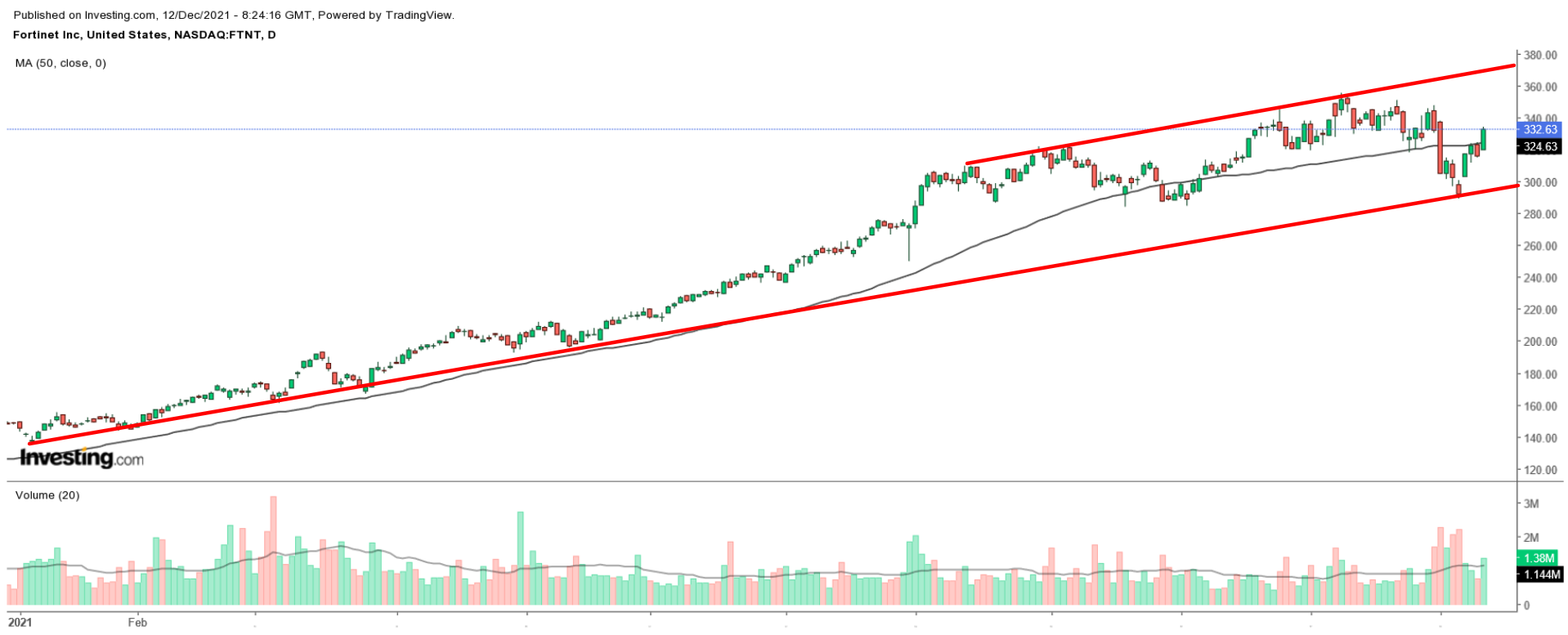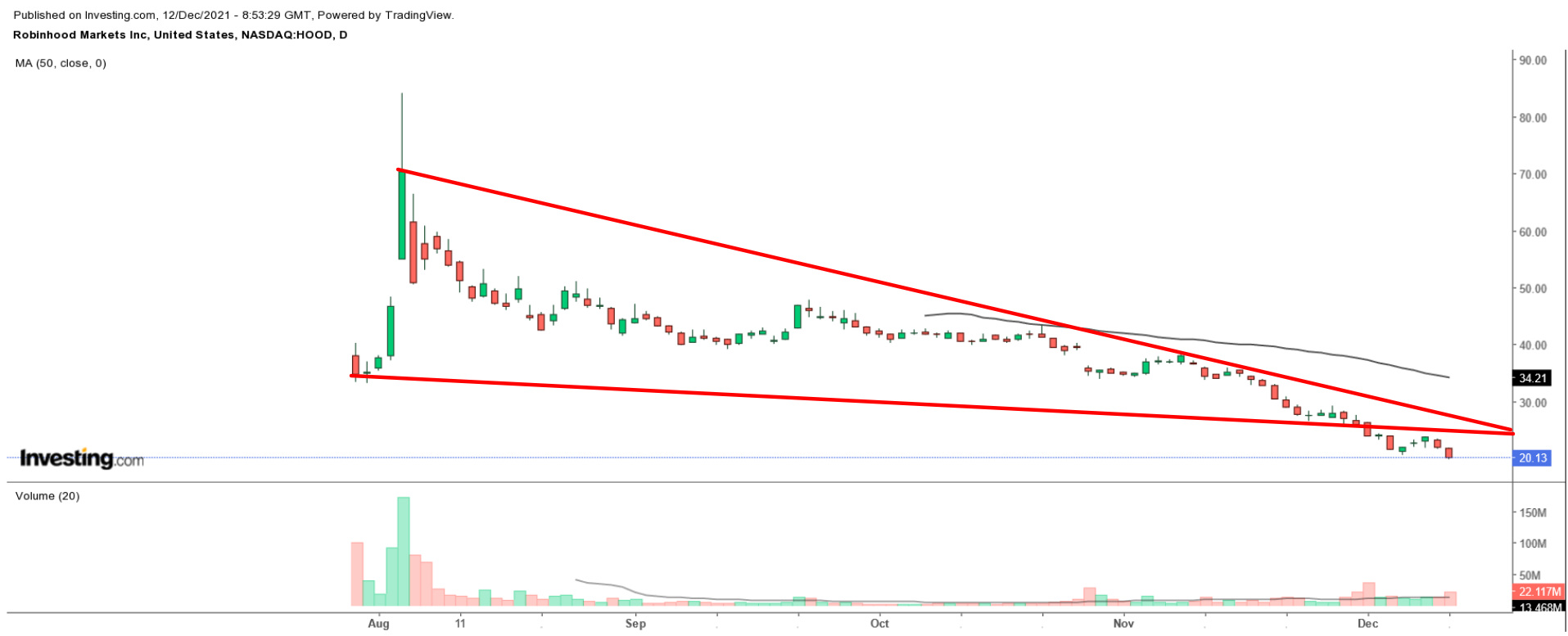Stocks on Wall Street ended higher on Friday, with the benchmark S&P 500 index closing at a new record peak as markets shrugged off the monthly CPI print showing the hottest inflation reading since 1982.

This coming week is expected to be busier than usual with all eyes on Wednesday’s Federal Reserve policy decision. The US central bank is set to announce a speedier rate of tapering of its bond-buying program, and signal that it expects to start hiking interest rates in 2022.
In addition to the Fed, there is also important economic data this week, including the latest US producer price inflation and retail sales reports, as well as another batch of notable earnings from companies like Adobe (NASDAQ:ADBE), FedEx (NYSE:FDX), and Rivian Automotive (NASDAQ:RIVN).
Regardless of which direction the market goes, below we highlight one stock likely to be in demand and another which could see further downside.
Remember though, our timeframe is just for the upcoming week.
Stock To Buy: Fortinet
Fortinet (NASDAQ:FTNT) will be in focus this week, as shares of the thriving cybersecurity specialist will be added to the key NASDAQ 100 index as part of its annual reconstitution.
The Sunnyvale, California-based company will join the key tech benchmark—which tracks a basket of the 100 largest, most actively traded US companies listed on the NASDAQ Composite—after the close on Friday, Dec. 17.
In general, stocks making the jump to the closely followed index usually benefit from increased liquidity and greater interest from individual and institutional investors. According to a study by NASDAQ based on the analysis of NASDAQ 100 additions from 2010 to 2020, stocks tend to outperform the broader market from five days pre-announcement to post-index inclusion.
That should bode well for shares of the high-flying, cloud-based information security firm, which develops and sells cybersecurity solutions, such as physical firewalls, antivirus software, intrusion prevention systems and endpoint security components.

FTNT, which started the year at $148.53 and soared all the way to an all-time peak of $355.35 on Nov. 8, ended Friday’s session at $332.63. At current levels, the cybersecurity company has a market cap of roughly $54.4 billion.
Fortinet has prospered this year amid robust demand for its products and services as the COVID-19 pandemic and the shift to the work-from-home environment sped up enterprise digitization trends.
Year-to-date, shares of the fast-growing tech firm have gained almost 124%, easily outpacing the comparable returns of both the S&P 500 and the NASDAQ over the same timeframe.
Stock To Dump: Robinhood Markets
With the Fed preparing to tighten monetary policy more aggressively than previously thought, unprofitable technology companies such as Robinhood Markets (NASDAQ:HOOD) look set for further losses. In addition, HOOD shares are also expected to suffer a challenging week as investors continue to worry over the negative impact of several factors racking the popular stock trading app.
In general, expectations of less dovish Fed policy tend to weigh more heavily on high-growth tech stocks with lofty valuations, as it threatens to erode the value of their longer-term cash flows.

HOOD, which started trading on the New York Stock Exchange at $38 following the company’s much-hyped IPO in late July, ended Friday’s session at a record low of $20.13, more than 75% below its all-time high of $84.12 touched on Aug. 4. At current levels, the Menlo Park, California-based stock market-trading platform has a market cap of $17.3 billion.
In a sign of how bad Robinhood’s business has fared in recent months, the financial services company reported disappointing third-quarter financial results in late October, amid lower retail trading activity and as crypto trading declined.
It also provided weak guidance and warned that many of the negative factors that impacted Q3 results, such as seasonal headwinds and lower retail trading activity, may persist into year-end.
Adding to the downbeat sentiment, the company advised in October that potential SEC intervention in a payment arrangement between brokerages and trading firms—known as ‘Payment For Order Flow’ (PFOF)—could pose risks to its core business.
